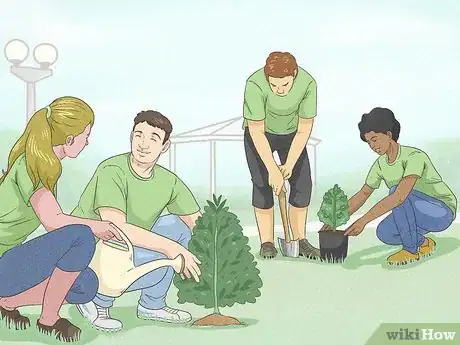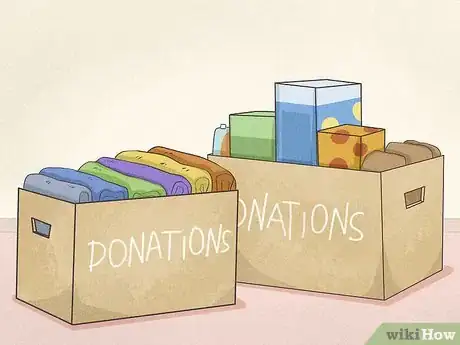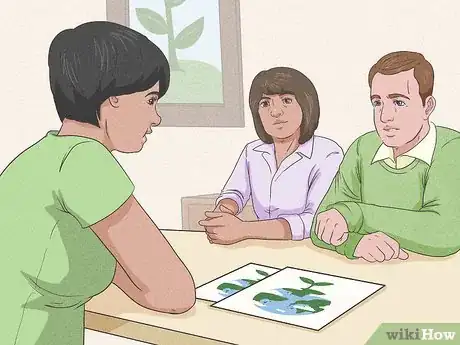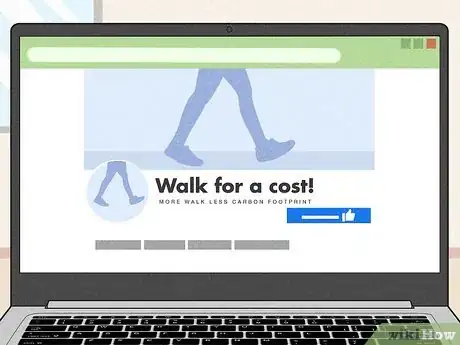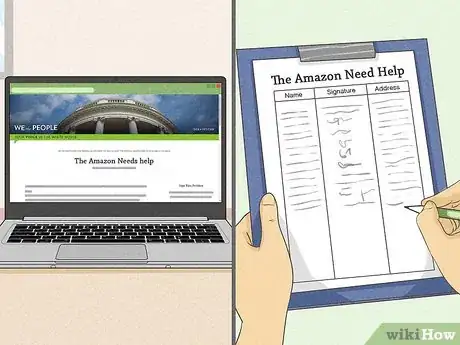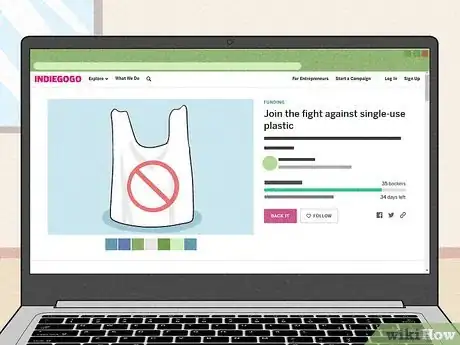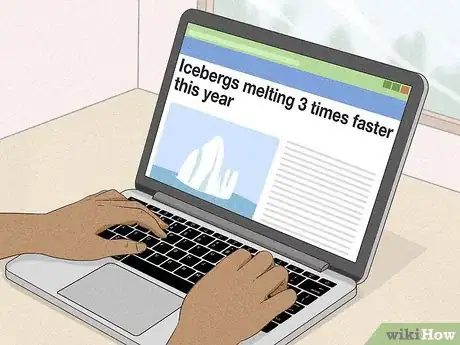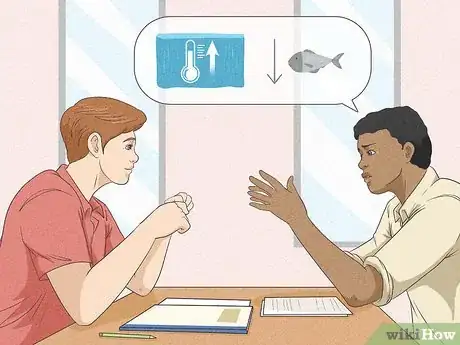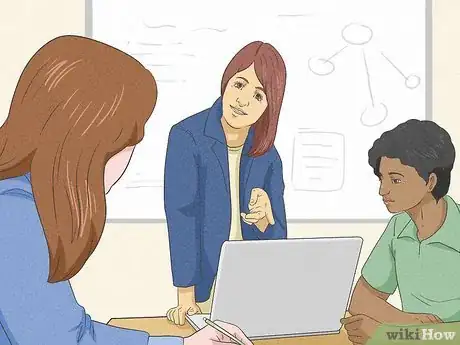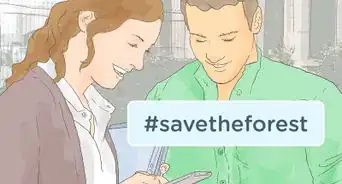This article was co-authored by Bridget Connolly and by wikiHow staff writer, Christopher M. Osborne, PhD. Bridget Connolly has volunteered on political campaigns at the local and federal level for over 10 years, most notably for the 2008 Obama campaign in Nevada and Josh Harder's Congressional race in 2018. She has gone door-to-door to help register voters and get out the vote in both California and Nevada.
There are 14 references cited in this article, which can be found at the bottom of the page.
This article has been viewed 871,381 times.
An activist is anyone who sees the need for change and devotes their time to doing something about it. And, as successful teen activists prove, structural, social, or economic barriers don’t have to stop you from pursuing your passion and creating positive change.[1] If you are interested in making a difference for a cause you care about, you can do so by educating yourself about the issue, finding ways to get involved in-person and online, and possibly even pursuing a career in a field related to your cause.
Steps
Finding and Supporting Your Passion for Change
-
1Set ambitious but realistic goals. Throughout history, individual activists have helped topple empires, liberate the oppressed, and open minds to new ideas. And today, even teens can improve their local neighborhoods or build social equality movements through their own efforts.[2] If you want to achieve something, it’s important to be specific about what you want to see happen and how you can really get there.
- A good tip for making goals is to "think global act local". Basically, you should know how you will benefit the whole world, but you should do the action in your own community. For example, if you want to reduce carbon dioxide, make a change to stop emitting too much carbon dioxide yourself.
- For instance, while halting human-caused climate change is a noble goal, it’s too broad to be directly actionable. You can, however, advocate for tougher emissions standards for vehicles and industries in your area.
-
2Join (or start) an organization that supports your cause. If you share a passion for the same cause as many other activists, you can probably find one or many existing organizations to join. These could be anything from a student club to a national organization (like the American Civil Liberties Union or the National Organizers Alliance).
- Most activist organizations offer different levels of involvement. So you can do whatever you feel most comfortable with, whether that means attending meetings and demonstrations, making phone calls to your local representatives, or just donating a little money when you can.
- Or, you can set up your own activist organization, whether it be a recycling club at school or an anti-racism group online. It’s okay to start small.
Advertisement -
3Volunteer your time. One of the best ways to make a difference is to donate your time to support your passion. Reach out to organizations in your community that does work for your cause, and ask how you can help.
- For example, if you are interested in supporting animals in need, try volunteering at your local animal shelter or wildlife rescue. There are many ways you could help, from caring for the animals to helping with fundraising events or writing content for the web.[3]
-
4Donate money or supplies. Most activists or charitable organizations need resources to do their work. If you can’t afford to donate money to an organization that supports your cause, you may be able to donate other things they need, like clothing or canned food.
- Be aware that some charities are more reputable than others. If you plan to donate money or goods to support a cause, do some research before you donate. Check out your charity’s rating with organizations like Charity Watch, Charity Navigator, or the BBB Wise Giving Alliance.[4]
-
5Reach out to family and friends. Tell your family and friends about your cause, and invite them to get involved. If they are interested, share literature about your cause or just talk to them about what you have learned. If you do volunteer work, invite an interested friend or family member to volunteer with you.
- If you’re not sure how to begin, start by coming up with a list of five friends or family members you feel you can talk to about your cause. Think about how you would feel most comfortable approaching them (e.g., over email, over the phone, or in-person), and reach out to them in the way that feels right to you.[5]
-
6Lead by example. One of the simplest and most important forms of activism is practicing what you believe in, or “conscious activism.” Practicing conscious activism means incorporating activism into your everyday life by living and acting in ways that directly support your cause (e.g., reducing your carbon footprint, using sustainably produced products, and so on).[6]
- For example, if you are interested in minimizing animal cruelty, you can start by not using products made from animals (like fur or leather) and avoiding businesses that exploit animals (like circuses or SeaWorld).
-
7Identify and specify your passions. When you look at the world around you, what gets you excited? Fills you with hope, makes you angry? Causes you to be fearful of the future? Your passions can focus on supporting what’s good (e.g., healthier menus in schools) or confronting what you see as wrong (e.g., online body-shaming of teens).[7]
- Write down or type out a list of things you’re passionate about, and try to be as specific as possible. For each, identify the problem, the solution, and what you can do to help.
Partaking in Online Activism
-
1Promote your cause on social media. You can use social media to keep your friends and followers informed about the causes you support. Post informative articles, write about what you are doing to stay involved, and invite your friends to attend events or donate to fundraisers for your cause. Facebook, Twitter, Instagram -- each of the above is a good place to start.[8]
-
2Explain and provide evidence for your perspective. No matter your cause, from nuclear proliferation to gender identity and bathroom choices, you’ll meet plenty of people online with differing views than yours. Some will never be persuaded no matter what evidence you provide, but others may be willing to listen to reason, thoughtful explanations.[9]
- Appealing to others’ emotions (“This product is harmful to our children’s health!”) works best when supported by evidence (“Check out the following scientific studies…”).
- There is “fake news” all over the internet, so do a little digging to evaluate the evidence before sharing it.
-
3Circulate online petitions. Thanks to the internet, starting a petition no longer has to mean going door to door with a pen and clipboard. There are numerous websites and social media platforms that house petitions, including change.org and petitions.whitehouse.gov. To drum up support for a petition:
- Establish a clear, specific, and realistic goal — “Protect the wooded area adjacent to Veterans' Park from development.”
- Personalize the cause by telling your story — “I, like many kids in this area, developed an appreciation for nature by walking through those woods.”
- Mix online and offline efforts. Encourage friends and colleagues to share your petition both online and in person.
-
4Provide financial support if you can. It’s easy to donate money online to existing organizations that focus on your cause, although you should always do some research on how such groups spend their money. You can also turn to the internet for crowdfunding options, either by utilizing websites like indiegogo.com or firstgiving.com or by using social media to encourage direct donations.[10]
- If you’re raising money for your local animal shelter, for instance, make sure there is a clear plan in place for using the funds. Many people won’t just give money blindly without knowing what it will be used for.
Being an Informed Activist
-
1Read up on your cause. Before getting involved in a cause, it’s important to be informed about the issues involved. Check out books related to your cause from your school or public library.[11]
- Charities or other activist organizations devoted to your cause may be able to recommend some books to you. Check out their websites for reading lists.
- Ask teachers or professors you know who may be familiar with your cause to recommend some books.
-
2Look at websites related to your cause. Search to find the websites of activist or charitable organizations that support your cause. Read their summaries of the issues, read up on what they are doing to help, and look at any information they have about how you can get involved.
- Use the internet to read up on the topic in general, but always be aware of the sources for the information and any biases that might be apparent.
-
3Keep an eye on the news. Watch the news or browse newspapers, magazines, or online news publications for information about new developments related to your cause.[12] If you are a member of a charitable or activist organization for your cause, then they may offer a regular newsletter or roundup of recent stories related to the cause.
- Keep in mind that not all sources are credible or reliable. Carefully evaluate any sources you read, especially on the internet, and be aware of the author’s possible biases.[13]
-
4Take classes on issues related to your cause. If you are in high school or college, you may be able to sign up for classes that will help you understand your cause better. For example, if you are concerned about environmental issues, an environmental science class would be a good place to start.
- Taking a class can not only help you become more informed about your cause, but it can also help you connect to others who are interested in the same issues.
- Talk to your teacher or professor outside of class to get more ideas about how to get involved or educate yourself further.
- If you’re not in school, or if your school doesn’t offer courses that are helpful to you, you might be able to find a free or affordable online course related to your cause. For example, Smith College offers a free online course on Women’s Activism through the edX website.[14]
-
5Listen to the people most affected. If you are interested in a cause that affects other people, then one of the best ways to understand how to help them is to listen to what they have to say. If you can’t reach out to them in person, then try connecting to affected people and communities via social media, or read their stories in books or online.[15]
- For example, if you are interested in helping with issues related to LGBT+ rights, speak to members of your local LGBT+ community about what kinds of issues matter the most to them, and what you can do to help. If your campus has a Gay-Straight Alliance club, that might be a good place to start.
-
6Talk to other activists. If you know other activists in your community who are involved in the cause you are interested in, talking to them is a great way to find out what work is already being done in your area and what you can do to help out.[16]
- Try connecting with other activists in your area via social media or attend meetings for organizations in your area.
- If you are in school, talk to other students or teachers who are interested in your cause. Find out if there are any student organizations on campus related to your cause.
Pursuing a Career in Activism
-
1Major in a field related to activism. If you are in college or getting ready to start college, consider majoring in a field that will help you support your cause. For example, you could major in a field like organizational leadership, or you could focus on something more specific to the cause you are interested in, e.g., environmental science or women’s studies.[17]
- Also think about other career paths that would allow you to support your cause. For example, if you are interested in public health, you might seek a career in the medical field.
-
2Seek internships. If you're new to the workforce, internships can be a great way to begin a career as an activist. During college or just after college, look for internships related to your interests. See if your favorite grassroots organizations and non-profits offer internships. Talk to your college advisor about where to find internships related to activism. Completing one or more relevant internships can put you on the right track to becoming a career activist.[18]
- Some degree programs may require you to complete an internship to graduate. Make sure you check your graduation requirements and complete an internship if it's necessary for your degree.
-
3Look for activist jobs. If you are ready to start working, look for jobs that are relevant to your interests. See if charities and grassroots organizations you believe in having any open positions that are suited to your skills. For example, if you have strong writing and editing skills, see if you can work as a copywriter for a grassroots organization. If you have skills with planning and coordinating events, look for work as a volunteer coordinator.[19]
- Basically, whatever job skills you have are probably useful to some activist organization out there that supports your cause — they may need accountants, drivers, cooks, carpenters, doctors, etc.
Expert Q&A
-
QuestionIs registering people to vote a form of activism?
 Bridget ConnollyBridget Connolly has volunteered on political campaigns at the local and federal level for over 10 years, most notably for the 2008 Obama campaign in Nevada and Josh Harder's Congressional race in 2018. She has gone door-to-door to help register voters and get out the vote in both California and Nevada.
Bridget ConnollyBridget Connolly has volunteered on political campaigns at the local and federal level for over 10 years, most notably for the 2008 Obama campaign in Nevada and Josh Harder's Congressional race in 2018. She has gone door-to-door to help register voters and get out the vote in both California and Nevada.
Political Activist Yes! Registering people to vote helps remove barriers for people who have been marginalized by educational systems, culture, and misinformation about the importance of their vote. I’ve had so many experiences where every vote counts. If 500 people are registering people to vote in a specific county, and we each get 1 person, and somebody wins by 400 votes, that’s a really big deal. I think it’s a civic duty for people who understand how politics work and understand that voting is at the bedrock of all of that. The people who don’t vote are essentially disenfranchised; they aren’t playing a part in what’s happening with their tax dollars and who is representing them at the local, state, and federal level. All levels. It takes a lot of work to stay informed, but that’s how our system is set up. You’re voting people into power, so it’s a civic duty.
Yes! Registering people to vote helps remove barriers for people who have been marginalized by educational systems, culture, and misinformation about the importance of their vote. I’ve had so many experiences where every vote counts. If 500 people are registering people to vote in a specific county, and we each get 1 person, and somebody wins by 400 votes, that’s a really big deal. I think it’s a civic duty for people who understand how politics work and understand that voting is at the bedrock of all of that. The people who don’t vote are essentially disenfranchised; they aren’t playing a part in what’s happening with their tax dollars and who is representing them at the local, state, and federal level. All levels. It takes a lot of work to stay informed, but that’s how our system is set up. You’re voting people into power, so it’s a civic duty.
Warnings
- Be aware of the consequences if you plan to engage in acts of civil disobedience. Carry a lawyer's business card if you believe that you may be arrested. In the USA, the ACLU makes pocket cards for this purpose.⧼thumbs_response⧽
- Be respectful of other's opinions, and learn when to recognize when you are turning into a Soapbox, Sally. Once you recognize this, stop being an activist.⧼thumbs_response⧽
References
- ↑ https://circle.tufts.edu/our-research/youth-activism-and-community-change
- ↑ https://circle.tufts.edu/our-research/youth-activism-and-community-change
- ↑ http://www.onegreenplanet.org/animalsandnature/reasons-to-volunteer-at-your-local-animal-shelter-or-sanctuary/
- ↑ http://www.consumerreports.org/charities/best-charities-for-your-donations/
- ↑ http://www.nsvrc.org/sites/default/files/saam_2014_becoming-an-agent-of-social-change_0.pdf
- ↑ http://www.onegreenplanet.org/lifestyle/how-to-get-involved-in-conscious-activism-no-protesting-necessary/
- ↑ https://www.humanrightscareers.com/magazine/how-to-become-a-human-rights-activist/
- ↑ http://www.onegreenplanet.org/animalsandnature/how-to-get-involved-in-causes-you-care-about/
- ↑ https://www.betterhelp.com/advice/persuasion/the-art-of-persuasion-what-it-is-and-how-to-practice-it/
- ↑ https://www.councilofnonprofits.org/tools-resources/crowdfunding-nonprofits
- ↑ http://www.onegreenplanet.org/animalsandnature/how-to-get-involved-in-causes-you-care-about/
- ↑ https://bigfuture.collegeboard.org/careers/law-government-community-organizers-activists
- ↑ https://uknowit.uwgb.edu/page.php?id=30276
- ↑ https://www.smith.edu/news/smith-edx-will-partner-for-online-course-on-psychology-of-womens-activism/
- ↑ http://ctb.ku.edu/en/table-of-contents/participation/encouraging-involvement/involve-those-affected/main
- ↑ http://www.onegreenplanet.org/animalsandnature/how-to-get-involved-in-causes-you-care-about/
- ↑ https://bigfuture.collegeboard.org/careers/law-government-community-organizers-activists
- ↑ http://www.careersinpublichealth.net/careers/community-activist
- ↑ http://www.careersinpublichealth.net/careers/community-activist
About This Article
If you feel passionately about an issue and want to become an activist, start by contacting local or online organizations with a similar mission. Ask them if you can volunteer your time or donate your money to contribute to the cause. Alternatively, you can also promote your cause on social media, share news articles, and circulate online petitions to raise awareness. Be sure to stay well-informed by keeping current with any news related to your cause! For tips on finding organizations that support your cause, read on!


